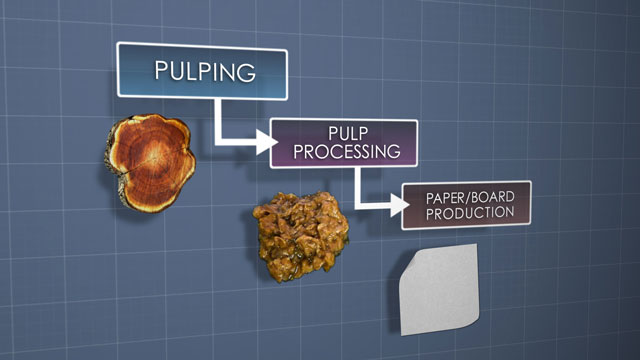
Pulping and Papermaking Overview
Brief history of papermaking and discussion on types of fibers used in the production of paper products. Discusses mechanical, chemical, and semichemical pulping. Also describes several pulp processing operations, including bleaching, and ends with a description of the various sections of a paper machine, including the forming section, press section, dryer section, and reel.
Request a demoCourse Details
Learning Objectives
• Define the terms “pulp,” “paper” and “paper grades” • Describe the major milestones in the history of papermaking • Differentiate between hardwood and softwood fibers • List in order the major operations for pulping and papermaking • Differentiate between mechanical, chemical, and semichemical pulping • Describe the screening, bleaching and refining steps in pulp processing • Define and order the major sections of a paper machine
Specs
| Course Level | Intermediate |
| Languages | English |
| Compatibility | Audio, Video |
Demos + Pricing
Learn more about our courses, get pricing, and see our platform.











